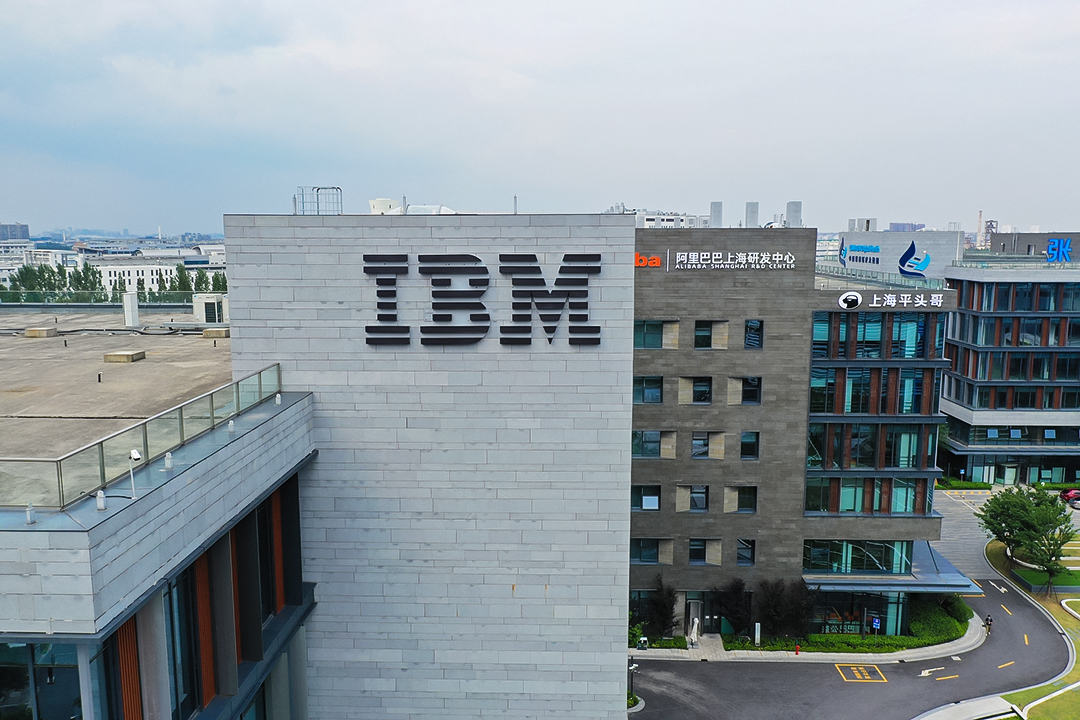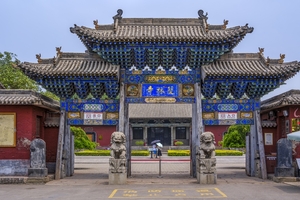Commentary: IBM’s Sudden China Layoffs Tarnish Reputation of ‘Foreign Company Culture’
Listen to the full version


In the era of globalization, Western tech giants like IBM Corp. leveraged their early mover advantage to sell mature IT products worldwide, profiting significantly while spreading Western corporate culture.
Hence, many people in China perceive multinational companies as paying more attention to employees’ welfare.
However, against today’s backdrop of decoupling and supply chain disruptions between China and the U.S., many companies are scaling back their operations in China. Some of these abrupt decisions, and the way staff layoffs are handled, are changing these perceptions.

Download our app to receive breaking news alerts and read the news on the go.
Get our weekly free Must-Read newsletter.
- DIGEST HUB
- IBM has laid off staff in its China R&D units abruptly, locking them out of the system before issuing verbal notices.
- The layoffs reflect a broader trend of shifting operations from China to India due to cost efficiency and geopolitical tensions.
- IBM's declining business in China is influenced by China's move towards self-sufficient IT solutions and the larger geopolitical landscape.
In the era of globalization, Western tech giants like IBM Corp. capitalized on their early mover advantage to disseminate mature IT products globally, accumulating significant profits and proliferating Western corporate culture in the process [para. 1]. This led to a perception in China that multinational companies prioritized employee welfare more than local firms [para. 2]. However, the growing decoupling between China and the U.S. and supply chain disruptions are prompting these companies to reduce operations in China, reshaping these perceptions [para. 3].
A prominent example is IBM's recent layoffs in its China R&D units. On a Friday, China-based employees unexpectedly found themselves locked out of IBM’s intranet and cloud drives. They thought it was a technical issue until they received verbal layoff notices from their managers [para. 4][para. 5]. On the following Monday, an official online meeting relayed the news, but it concluded abruptly within three minutes, leaving some employees unable to even access the meeting due to being locked out [para. 6]. The layoffs, characterized by a lack of preparedness and respect, shocked many employees [para. 7].
Currently, frontline managers and HR staff are negotiating severance packages without including the affected employees, and no handover arrangements have been made [para. 8]. One employee reported that their American colleagues were unaware of the layoffs in the China team [para. 9]. IBM did not respond to inquiries from Caixin but stated that operational adjustments wouldn’t affect its service in the Greater China region [para. 10].
Most IBM employees expressed pride in working for the company, citing a respectful and balanced work culture [para. 11][para. 12]. IBM provided extensive training, open communication, and a feedback system, making the work environment positive. The company was also flexible with office hours even before the pandemic [para. 13]. Despite lower salaries compared to domestic internet giants, employees felt respected and valued. Historically, IBM provided a transition period of at least four months for project handovers during layoffs [para. 14].
However, previous layoffs involved one-on-one communication and transparency, contrasting with the impersonal approach of the recent cuts [para. 15][para. 16]. The reduction in operations was unexpected for many, who had seen IBM expand its R&D teams in China during the 2010s due to market potential and cost advantages [para. 17][para. 18]. The affected units include the China Development Lab (CDL) and China Systems Lab (CSL), established in 1999 and employing a substantial number of workers [para. 19].
The turning point came in 2018 with changing China-U.S. relations, followed by IBM accelerating its shift of R&D positions to India under CEO Arvind Krishna since 2020 [para. 20][para. 21]. An employee highlighted that the cost of one Chinese employee could equal three to four Indian employees, making the transition economically motivated [para. 22]. IBM has been investing in India, establishing R&D teams and a cybersecurity hub, aligning with India's digital economy ambitions [para. 23][para. 24].
IBM's declining business in China, with a 16% year-on-year revenue drop in 2023, is also driving its withdrawal [para. 25]. Major Chinese state-owned enterprises are moving towards independent IT systems, replacing IBM's equipment. The "De-IOE" campaign in 2013 marked a shift towards homegrown products, which has intensified due to U.S. technology restrictions [para. 26][para. 27]. Despite such downsizing, market competition and evolving geopolitical factors necessitate a rational view of these changes. The key for the Chinese market is to focus on its own strengths amidst these global shifts [para. 28].
- IBM Corp.
- IBM Corp., once a key player in China’s R&D with major units like China Development Lab and China Systems Lab, is scaling back due to geopolitical tensions and cost benefits. They abruptly laid off China-based employees, shifting work to India, where labor is cheaper. IBM’s declining business in China is also affected by local demands for independent IT systems and the "De-IOE" initiative to replace U.S. tech suppliers.
- Oracle Corp.
- The article briefly mentions Oracle Corp. as one of the American suppliers, along with IBM and EMC Corp., that were replaced through China's "De-IOE" campaign. This campaign aimed to substitute servers and databases from these American companies with homegrown products. The context suggests Oracle has been impacted by China's push for independent and controllable IT systems, driven by geopolitical factors and domestic policies.
- EMC Corp.
- The article mentions EMC Corp. in the context of China's “De-IOE” campaign from 2013, which aimed to replace servers and databases from American suppliers like IBM, Oracle Corp., and EMC Corp. with homegrown products. This initiative was part of China's broader push to substitute foreign IT products and services with domestic alternatives.
- 2013:
- China’s internet and finance sectors accelerated the 'De-IOE' campaign, reducing reliance on American suppliers like IBM.
- 2018:
- Shifts in China-U.S. relations began influencing IBM to retract some of its R&D from China.
- 2020:
- After Arvind Krishna became CEO, IBM's R&D positions in China started shifting to India.
- By 2020:
- IBM gradually laid off employees in China while hiring new staff in India.
- 2021:
- IBM closed its China Research Laboratory after 26 years of operation.
- February 2022:
- IBM announced a multi-million dollar investment to establish a cybersecurity hub in Bangalore.
- Last August:
- Arvind Krishna announced IBM's continued expansion of investment in India.
- 2023:
- IBM’s revenue in China declined by 16% year-on-year, partly due to currency fluctuations and competition from domestic products.
- Friday, August 23, 2024:
- China-based staff found themselves locked out of IBM’s intranet virtual private network and shared cloud drive. Later that day, they received verbal layoff notices.
- Monday morning, August 26, 2024:
- IBM held an online meeting to officially relay the news of layoffs to the staff.
- PODCAST
- MOST POPULAR







 Sign in with Google
Sign in with Google
 Sign in with Facebook
Sign in with Facebook
 Sign in with 财新
Sign in with 财新